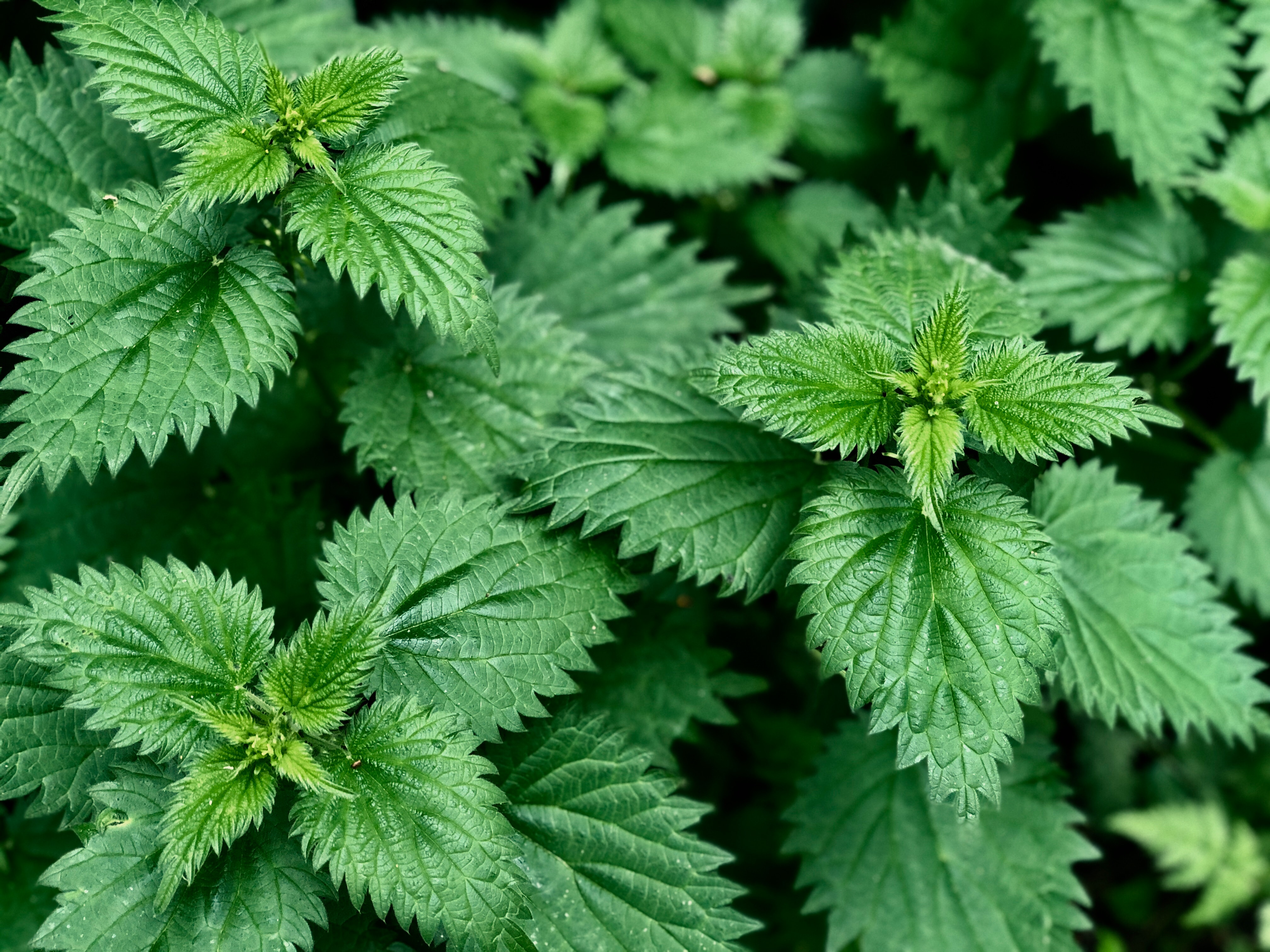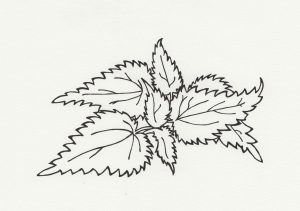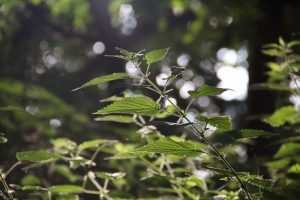by Quinn K Dyer
Know it:
Stinging nettles are aggressively defensive; they protect themselves.
Because of this they are perfect for use in protection spells or any magic that requires ample protection.
Nettles not only absorb negative energies and magic, they retaliate against them.
Nettles are also handy in the kitchen. It’s a highly nutritious plant that is also known for its medicinal properties.
You can use its defensive capabilities to boost your immune system and heal your body.
Also used for banishing and binding; it disperses darkness and illness. Particularly useful for banishing fearing and invoking courage. Can be used to get rid of unwanted spirits.
Nettles have also been used in weaving and papermaking.
Grow it:
Stinging nettles self-seeds in the fall and can spread easily.
They do not need a lot of care, they just sort of grow. They will grow in full or partial sun and don’t mind frequent waterings.
Do not harvest the first year; allow the patch to establish itself.
Use gloves and long sleeves when harvesting, as the stinging hairs can leave a rash.
This is not a great plant to grow with kids or pets unless you can keep them out! This is a plant that places boundaries and it comes with a great reminder for us to harvest mindfully.
Do not eat raw! Cooking or drying destroys the stingers.
If you do get stung, a paste of baking soda and water can ease the sting. Fresh nettle juice can calm the rash as well.
Use it:
Early spring nettle leaves make for the best tasting when using in the kitchen.
Remember to always, always cook or dry nettles before eating. Dried, it grinds down easily into powder.
It can also be used in pesto or beer.
My favorite way to use them is in soup stock.
Here’s a recipe for a simple, nutritional stock.
You will need half a bunch of celery, 1 onion, 4-5 carrots, a few handfuls of nettles, a chicken or turkey carcass, 4 cloves of garlic and pantry herbs.
Chop celery, carrots and onion into large pieces. Add to a large soup pot with chicken/turkey carcass and whole nettles.
Flavor to taste with herbs such as rosemary, bay leaves, garlic, thyme and salt. Bring to a boil and then let simmer for 2 hours.
Strain out solid matter and freeze.
There are many medicinal uses for this plant as well.
The entire aerial parts can be used fresh or dried as tea or cold infusion.
This tea is good for aching joints, urinary issues and infections, allergy relief, and nursing mothers.
Baths and facial steams with mint can help respiratory issues.
Fresh juice can be used for a spring tonic can help with allergies, but can also cause them in other people. So use caution!
It can also be burned for banishment or to purify a sick room.
Tinctures made from the root can be applied directly to the skin for joint pain. The fresh root is an anti inflammatory.
Harness the healing energies of nettles with this Blood and Bones Vinaigrette Tincture:
To make a tincture take mugwort, chickweed, and nettles and cover leaves with apple cider vinegar and let sit in a dark place for 2 weeks.
Shake 3 times a day.
The plethora of vitamins and minerals (including iron, vitamin C, vitamin A, calcium, zinc, and magnesium) will seep out into the vinegar.
This elixir wards off anemia and brittle bones.
It makes an excellent vinaigrette and can be eaten on salads.
Or it can be taken by the tablespoon as a tonic.
IN CONCLUSION
If this essay resonates with you, please join our WITCH email list by using the forms on this website so we can stay in touch.
About the Author:
 Quinn K. Dyer is a native of Philadelphia, born under Gemini, a witch and a wanderer. She currently spends her time writing and creating art. Check out her website and Instagram.
Quinn K. Dyer is a native of Philadelphia, born under Gemini, a witch and a wanderer. She currently spends her time writing and creating art. Check out her website and Instagram.
featured image via Unsplash










